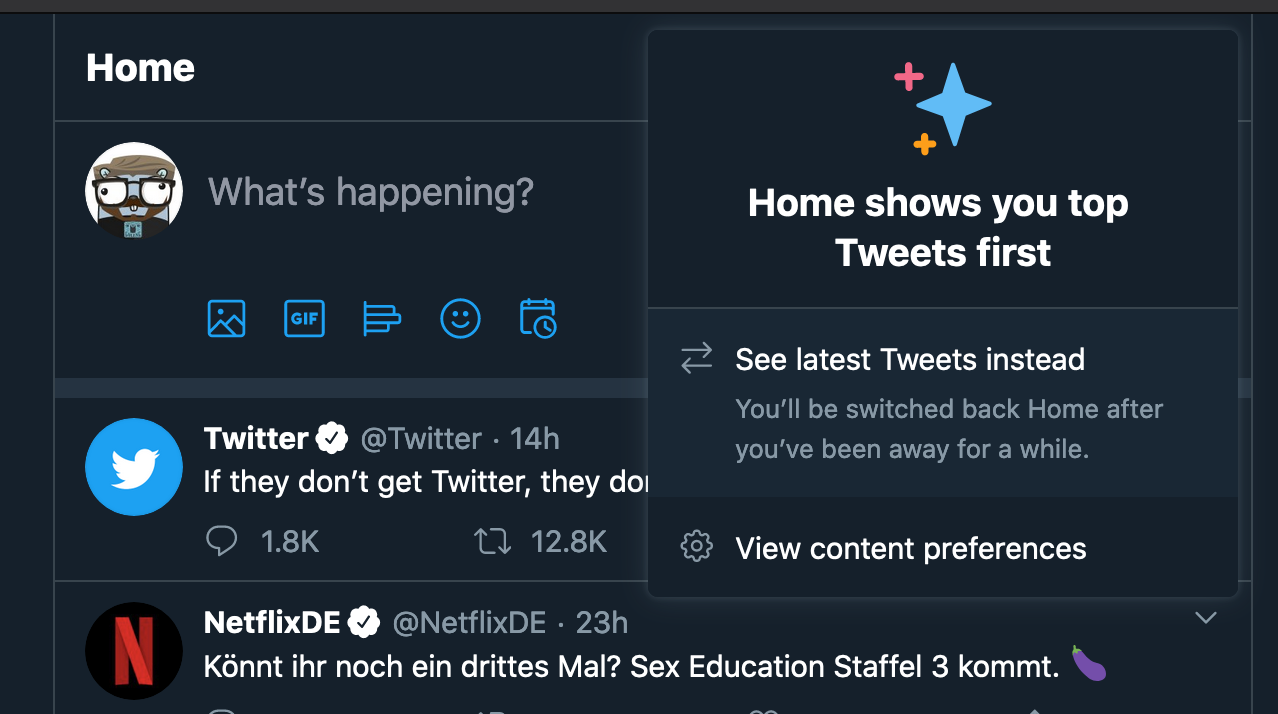In a recent post Andre Garzia wrote that sharing your content was the one big problem that blogging has in 2020. Feed readers, with the demise of Google Reader, have gone back to be niche tools, newsletter are … newsletters, and most “social networks” are optimised for one target audience only: the respective owners of those platforms.
The current situation facilitates the creation of echo chambers and gate keepers with commercial interests that tend to be orthogonal to those of the content producers themselves. Let’s say you post your content on Twitter (the platform) and that just redirects to your own website, then your tweet has potentially less value to Twitter (the company) than a tweet that does not redirect the user away from their website and over to yours. So it is in the interest of Twitter (the company) to show its users posts that don’t do that.
As bloggers its therefore getting harder and harder to distribute their work in a way that leads the readers to the “canonical” location of your work (your blog) and also to notify them about new posts.
I agree with pretty much everything Andre has written on this in his post but just want to add a couple of observations:
Content distribution
I usually share my blog posts through the following channels:
- In private via something like Slack and Signal with people in my close circle who I think might be interested in them.
- Publicly via Twitter and Mastodon as a general distribution channel for people to discover my blog and the posts on it but haven’t yet added it to their feed reader.
- If it’s highly specific to a certain topic, I post it also to the respective subreddits.
One thing to keep in mind, though: As Daniel mentioned on Mastodon, most subreddits don’t allow you to “self-promote”. Personally, I haven’t had that issue so far but I haven’t posted all that many of my posts there yet. What is allowed, though, is that you post your content onto your own profile which is also a nice way for people to follow your content explicitly (unless it violates some global terms of services and code of conduct).
As I wrote, in general, I haven’t had any issue linking my content on these platforms so far. Most of the subreddits that are relevant to my interests don’t have strict rules regarding self-promotion as long as the content itself is relevant (and not spam). For example [r/golang][] does not prohibit linking to your own blog unless it violates the Go CoC.
Curated platforms
One thing that makes Twitter (and Facebook, obviously) different from Reddit and Mastodon is that, by default, Twitter might not show users the actual timeline but a curated version. This is the level they can use to steer users away from content that might not be in the company’s best interest (as described in the intro). If your post is not deemed “relevant” it might not be shown to your followers.

This is a big pain and there is not much we can do to get around this (unless you consider SEO black-magic to be a valid response here). Andrea has the following suggestion:
So if you enjoy content from bloggers, if there are a couple authors that you’re always reading or watching as their content pops up in your favorite social network or news aggregator, then do those authors a favor and subscribe to their feed.
I’d go one step further: If you like someone’s content, please link to it on whatever platform you’re on, be it Twitter, Facebook, Instagram, Mastodon, Reddit, whatever.
In the end, content authors won’t really get around having to also promote their content on whatever platform their target audience is on. Especially with multimedia focus entities like YouTube, Instagram, TikTok, and Byte this is getting harder and harder, though (as some even prevent you to properly add links). While word-of-mouth probably doesn’t scale, it might be our last resort combined with offering a feed users can subscribe to.
At the same time, we should use every chance to promote channels that do allow use to reach our audiences in a reliable way.
Owning is still hard
Andre also mentions that nowadays it’s actually hard not to start a blog. That’s certainly true, but IMO it is still exceedingly difficult for a “normal” person to start a blog and own it.
Sure, you can go to Wordpress.com or other hosts with a paid plan, buy a domain and set it up with your host to “own” your blog’s URLs, but you still have don’t have an easy path if, for instance, your host is legally required to remove your content due to local laws that may or may not be relevant for where you are living. And even these initial steps to get a blog using your own domain are far from trivial for someone who doesn’t work in the tech industry or had otherwise experience related to web development.
These things still have to become far easier in order to make people even think if it’s not just more convenient to dump all their content into silos like Facebook.

Do you want to give me feedback about this article in private? Please send it to comments@zerokspot.com.
Alternatively, this website also supports Webmentions. If you write a post on a blog that supports this technique, I should get notified about your link 🙂